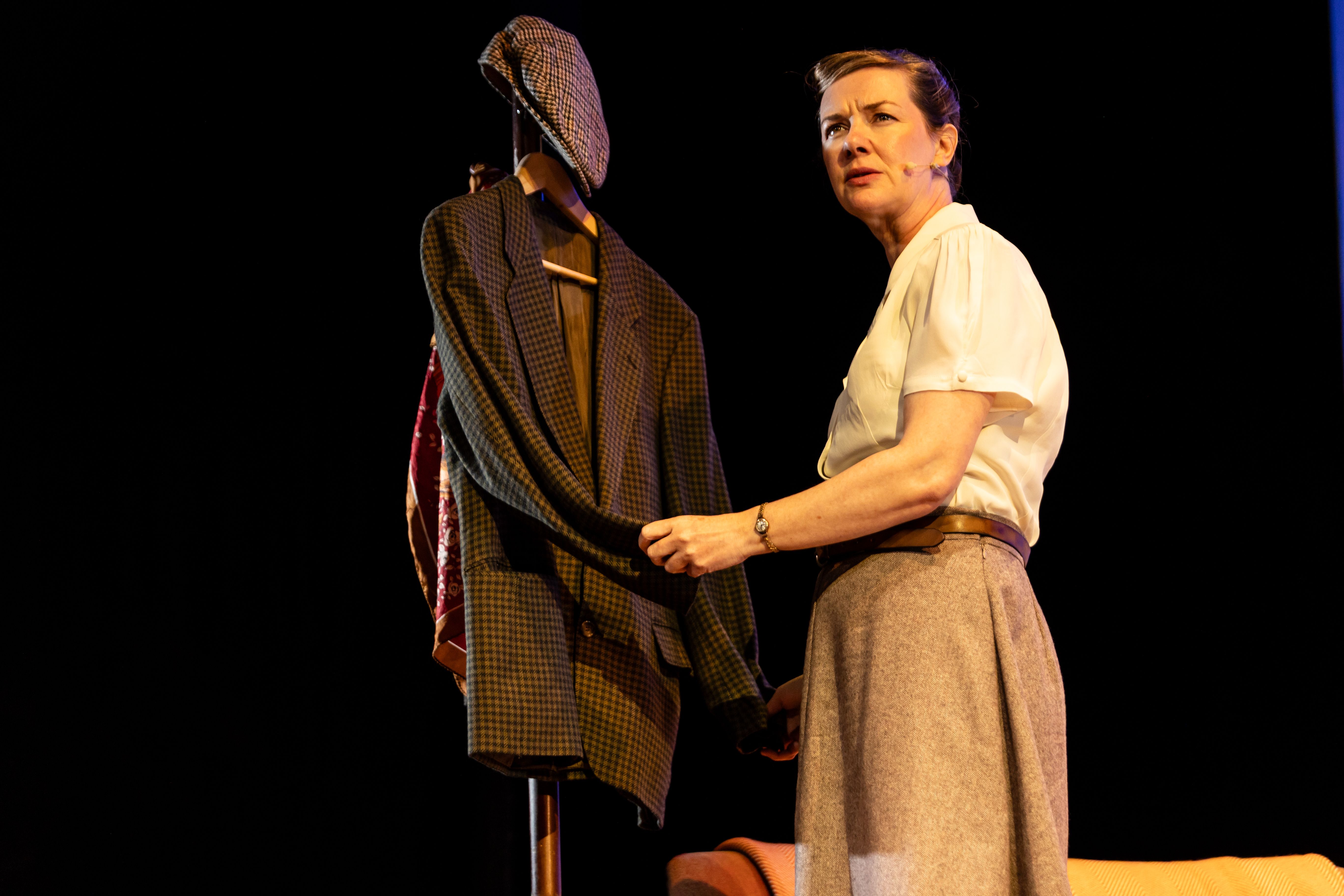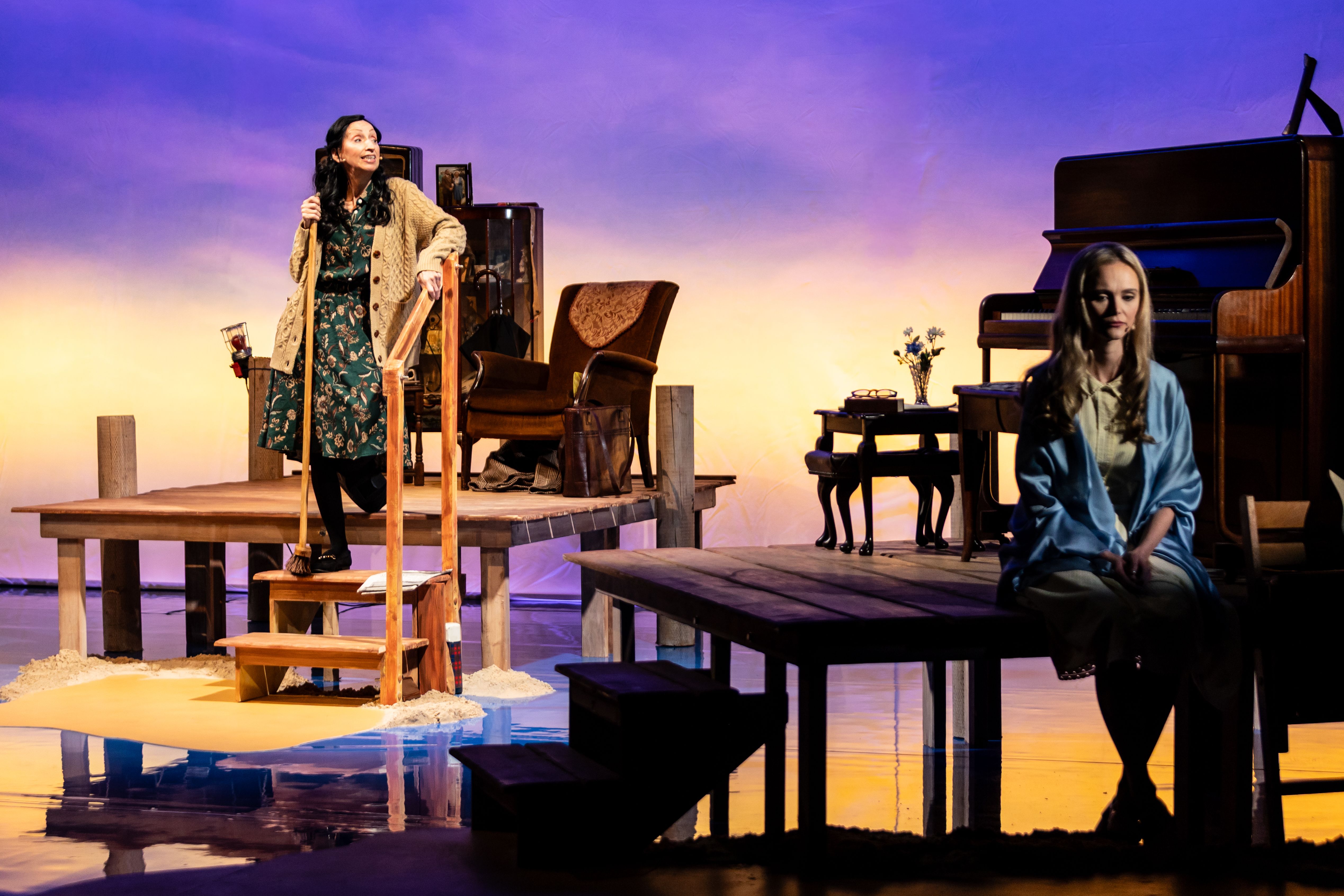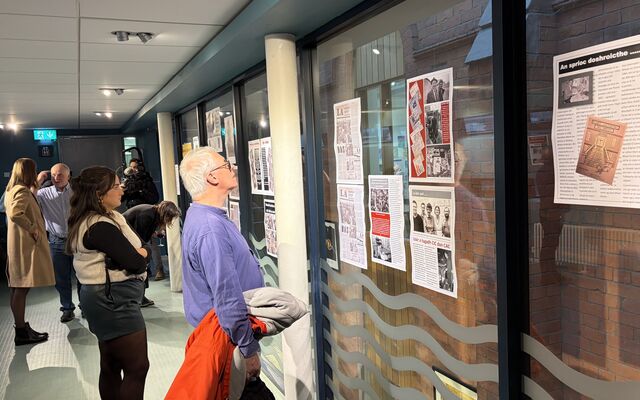THREE women, trapped by circumstance in post-war Belfast. Jean, caring for her ageing mother; Elsie, trying to reconnect with a husband who went away to war but returned a different man; and Arabella, a young widow whose husband is lost at sea.
Just as their lives couldn’t be any different, the one thing that binds them together is a need to break free from their claustrophobic lives. While Jean (Katie Tumelty) lives on the dark side of her terraced street, Elsie (Joanne Crawford) is trapped in a silent marriage, only rescued by her memories of working as an usher in the Paramount Picture House where she was always in the spotlight. And then there's Arabella (Jayne Wisener), too young to be a widow, rattling around the family pile she has inherited.
And while all three are lonely and alone in their own worlds, this is far from a sad play. If anything, it's the opposite. All the humour that we'd expect from a Marie Jones play is on show here. And it’s also beautifully written and crafted in such a way that you believe what the women are saying and feel the frustrations that they are experiencing.
A previous incarnation of Dear Arabella had the characters delivering three separate monologues. Now, under director Matthew McElhinney, the three stories are interwoven as the actors perform on separate platforms that hem them in and house the daily clutter of their lives.
As each story progresses the audience slowly begins to realise that the women are talking about the same day and their individual stories are soon to become one, illustrating how a simple act and a chance encounter can leave a lasting impression on other people's lives.
Leaving the constant noise and clamour of her working-class street behind, Jean takes a break from her fly-swatting invalid mother and finds herself on a train heading to the freedom of the sea, where she encounters Elsie and Arabella.
Elsie (Joanne Crawford)
Katie Tumelty as the much put-upon Jean dispatches the Marie Jones one-liners with typical deadpan delivery. Joanne Crawford is more subtle as she interacts with the guilt-ridden one-armed husband who can’t talk about what he witnessed in the war. Jayne Wisener is the over-burdened Arabella, angry about the life she should have had with the man who went off to sea and didn’t come back.
If there is a fourth character in the play then it is the imaginative and engaging use of sound, which is used to great effect throughout the production, cleverly adding an extra layer of atmosphere to the story.
Dear Arabella runs until October 12 at the Lyric Theatre. Tickets available here.








